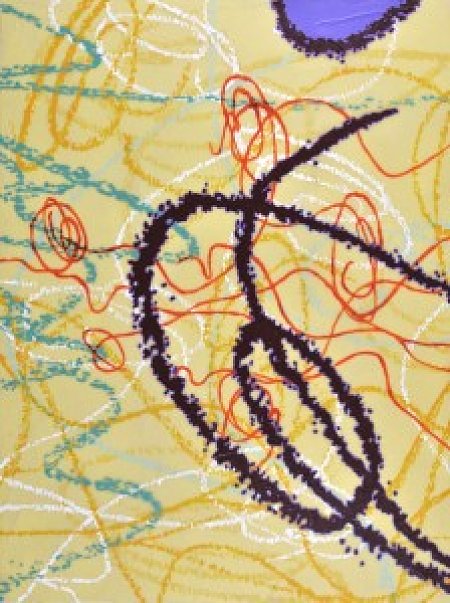
Numbers
After Olga’s death, this golden, glorious feeling deserted me. Is her suicide a sign for me, too? Maybe I should write a story about the days preceding her death, but first I would have to find memorable details about this suicide, something that makes it unlike all the others.
My favorite writer, a Russian named Chekhov, routinely paid attention to the smallest detail: one of his heroes would get into a funny pose (raising his right hand and his left leg, as though in an absurd ballet) and say funny words, and another would fall out of love just because his beloved was writing bad romance novels… What if I had ended up living in Olga’s proximity not because that closeness brought to my consciousness the luxuries promised by literature, but because I was destined to find something special in Olga’s life, something that would reveal our times?
But a body… the dead body–how memorable or special can it be by itself, if I don’t describe the wedding ring of her late husband that she was wearing on her finger, a ring so big that she attached it to her own with a yellow thread so it would not slip off… I don’t remember meeting him, being an infant when he succumbed to an illness, but I heard that besides being a painter, he was an inventor and that they were deeply in love… I could describe how a neighbor, hoping that nobody saw him, pulled both rings from Olga’s finger so fast that they got stuck and, while doing so, removed some skin from her already dead finger... Did this really happen? I don’t know; I didn’t see. But those details are the ones that make literature real, and I have to practice every day to be able to spot them.
At this point, the time has come to show my face, which I have been successfully hiding behind the story of death. A writer has to interest readers, even readers who have no inclination to philosophize or to question the existence of Judgment Day; the reader has to get all the gory or glorious details up front. You don’t hook fish with abstractions, my father taught me; you throw bait, and this bait would be me.
I’m lucky because, with my looks, I could easily pass for a heroine of a novel. Whichever I choose: I can be a writer, a hero of a story, or both if necessary. Perhaps, I shall make myself a major heroine of this story, even though I have no idea where it will lead me. I only know that I have to write every day to be rid of my fear of emptiness, when no words come from the pen, despite my home’s conveniences and my mental convulsions…
I was born twenty-two years ago in a doctor’s family, and my mother, who was not so happy with her housewife status, her stale, unrevivable bread, and her expiring youth, left when I was seven. She ran away with an émigré, an affable cavalry officer whom the Russian Revolution had left without a home or hopes of coming back, and I do not know where they went. But five years ago my father received a letter with Australian stamps and, upon receiving it, he closed the door to his room with a faint smile. When he emerged, he was averting his eyes. I don’t know whether my mother still lives with kangaroos and that officer in Australia or if she abandoned him the same way she jettisoned my Papá; I only know that it’s prohibited in our home to speak her name, as though she were God who abandoned us.
My father is a doctor and he is Jewish; my mother is half-French, half-Italian, and I’m supposed to be part-French too, even though I was “part-French” only for seven years, and after those seven years I spent with her, I’m not convinced that I need to share with her anything else, including nationality.
Almost up to this day, I studied chemistry, because two of my uncles studied chemistry, too, and they said that you always could find a job as a pharmacist. So I was going to a university, despite the fact that all I wanted was to practice writing instead of writing chemical formulas that–if you drop water on a page of a notebook–smear and disappear into a dirty cloud as fast as if dissolved by chlorine. Now they have said that a university is no place for Jews, so I am happy that I can devote all my time to literature instead of the Periodic Table or mixing concoctions in a nondescript glass.
I am tall and thin, and I look like one of the actresses in silent movies, which means that I don’t even have to open my mouth to be expressive; it’s my large, dark eyes accentuated by brownish shades that express everything (because of my facial structure, my high cheekbones, and my inability to eat meat). I have long hair that I keep in braids, and my dresses fall slightly below the knee. The only minor problem is that I limp when I walk, because I was born with one leg shorter (and my mother was too, which didn’t prevent her from running, with her affable officer, very fast and away from her cara famiglia), and I always have to put a special platform under my heel.
